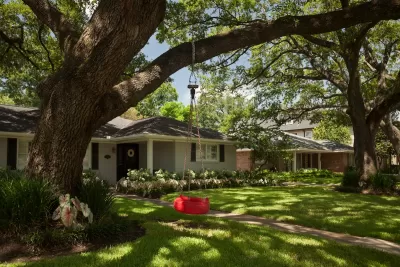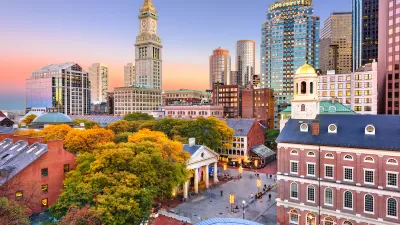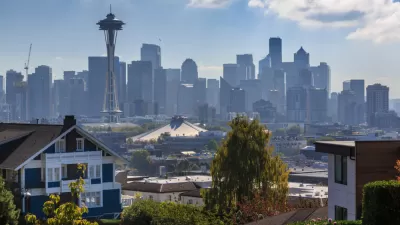The nonprofit model is becoming more popular as communities seek ways to reduce housing costs.

With housing costs spiraling out of control for many U.S. households, community land trusts and shared equity homeownership programs are growing in popularity, with over 300 land trusts nationwide.
In a piece for Route Fifty, Molly Bolan explains the model. “Land trusts are nonprofits that through a shared equity program purchase properties and then sell or rent the single-family homes, multifamily buildings or commercial spaces built on them. The trust retains ownership of the land the house sits on.” Unlike more predatory models (see investor-owned mobile home parks), land trusts enter a long-term (often 99-year) lease, which can be transferred to new owners should the first homeowners decide to sell.
“Nationwide, nearly 88% of people who own their homes through a shared equity program are first-time buyers, according to Grounded Solutions Network. The model offers social benefits too, like mitigating gentrification and reducing racial gaps in homeownership.” In Texas, the Florida Keys, and Lahaina, community land trusts are being used as a way to preserve affordable housing for residents in the wake of natural disasters.
Because scaling the land trust model can be costly, James Yelen, director of technical assistance for Grounded Solutions Network, warns that the suggests that cities should dedicate funding to supporting the model, pointing to examples in Oakland and Chicago. “Beyond dedicated funding, state and local governments can update laws to ensure community land trusts are eligible for affordable housing funding from programs like the federal Community Development Block Grant.” States, counties, and cities could also exempt community land trusts from property taxes to reduce their costs.
FULL STORY: Hungry for affordable housing, communities turn to land trusts

Planetizen Federal Action Tracker
A weekly monitor of how Trump’s orders and actions are impacting planners and planning in America.

Congressman Proposes Bill to Rename DC Metro “Trump Train”
The Make Autorail Great Again Act would withhold federal funding to the system until the Washington Metropolitan Area Transit Authority (WMATA), rebrands as the Washington Metropolitan Authority for Greater Access (WMAGA).

DARTSpace Platform Streamlines Dallas TOD Application Process
The Dallas transit agency hopes a shorter permitting timeline will boost transit-oriented development around rail stations.

Renters Now Outnumber Homeowners in Over 200 US Suburbs
High housing costs in city centers and the new-found flexibility offered by remote work are pushing more renters to suburban areas.

The Tiny, Adorable $7,000 Car Turning Japan Onto EVs
The single seat Mibot charges from a regular plug as quickly as an iPad, and is about half the price of an average EV.

Supreme Court Ruling in Pipeline Case Guts Federal Environmental Law
The decision limits the scope of a federal law that mandates extensive environmental impact reviews of energy, infrastructure, and transportation projects.
Urban Design for Planners 1: Software Tools
This six-course series explores essential urban design concepts using open source software and equips planners with the tools they need to participate fully in the urban design process.
Planning for Universal Design
Learn the tools for implementing Universal Design in planning regulations.
Municipality of Princeton
Roanoke Valley-Alleghany Regional Commission
City of Mt Shasta
City of Camden Redevelopment Agency
City of Astoria
Transportation Research & Education Center (TREC) at Portland State University
US High Speed Rail Association
City of Camden Redevelopment Agency
Municipality of Princeton (NJ)





























